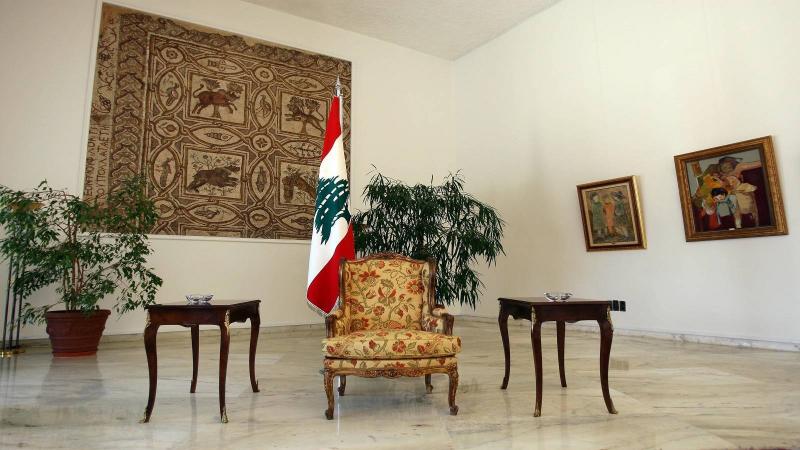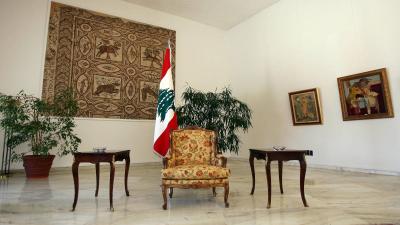As the ambassadors of the five-nation committee relied on the "Moderation Bloc" initiative as a presumed basis to open a dialogue for a presidential election that would lead to a consensus among the various parties, the French also leaned on their "socialist" friend. French envoy Jean-Yves Le Drian requested former Progressive Socialist Party leader Walid Jumblatt to make a mediating effort to break the stalemate, to which Jumblatt responded despite recognizing the difficulty of the mission. He initiated a movement led by his son, MP Taymour Jumblatt.
This swift response from Jumblatt, according to sources, serves as a reinforcement to the efforts of the five-nation committee and to Le Drian's mission, which he made clear has no other door for electing a president but through consensus, although the mechanisms for this consensus remain elusive. Simultaneously, it confirms Jumblatt's focus on dialogue and consensus, which intersects with President Nabih Berri’s initiative as a way to achieve the presidential obligation as soon as possible. According to the same sources, Jumblatt's movement aimed to prioritize dialogue or consultation and expedite the positive resolution of the presidential file. However, promising signs of progress remain absent, particularly since the obstruction, as shown by this movement, is still planted in the path and preventing the parties from convening at a table to agree on a president.
At this point, the meeting between the "Democratic Gathering" delegation and the Lebanese Forces Party leader Samir Geagea in Maarab came to a close. Sources told Al-Joumhouria that Geagea did not show any responsiveness to Jumblatt's initiative, and he maintained his stance of rejecting pre-consultation or agreement on a president while also opposing what are termed as conventions that undermine the constitution. Simultaneously, he reaffirmed that the presidential solution as perceived by the "Forces" involves calling for an open election session during which side consultations would take place. As for the president, the "Forces" seek a president who is neither from nor aligned with the Resistance, meaning a president who stands against the Resistance team.
**Socialist Evaluation**
The socialist evaluation of the meetings conducted by the "Democratic Gathering" delegation over the past two days avoided openly discussing negatives; however, it hinted at existing points of contention that should dissolve in light of the urgent need for electing a president and reinstating political order in a situation that is the harshest in Lebanon's history.
**Berri Supports**
While Hezbollah confirmed its support for any dialogue or consultation led by President Nabih Berri, sources from Ain al-Tineh reiterated that President Berri, committed to his initiative, emphasizes his willingness to facilitate efforts that establish convergence and consensus. On this basis, he has expressed his readiness to provide all necessary facilitations for achieving this goal. Thus, his response has been fully supportive of the five-nation committee and in alignment with the dialogic approach emphasized by Le Drian, alongside his encouragement of the "Moderation Bloc." In this context, he has approached the initiative positively and with welcoming sentiments, hoping it will yield the desired outcomes. However, he simultaneously considers the main obstacle persists among those opposing consensus, who evidently wish to maintain the status quo and are resistant to achieving the presidential obligation.
**A Waste of Time**
Notably, a senior official affirmed that all movements, whether local or foreign, remain a waste of time in the presence of a party insistent on evading consensus. This party seems to be under the delusion that it can shift the internal balance in its favor and impose a disputed president. This challenges the broad segment of Lebanese society wishing for a president who unites them, a point the "Democratic Gathering" delegation stressed in its meetings. If this persistence in obstruction and defiance of consensus reflects anything, it is the insistence of this faction on deepening the crisis and keeping the state in paralysis.
The same official confirmed that the rejection of consensus is not innocent; it is merely obstruction for the sake of obstruction. However, this situation cannot continue indefinitely, as everyone, especially these opponents, will ultimately succumb to the logic of consensus.
In response to a question regarding whether presidential dialogue and consensus on a president violate the constitution, the same official stated: "These political interpretations of the constitution undermine it, which stipulates the necessity of national accord in everything, especially in building all constitutional institutions. The constitution specifies mechanisms for this accord, including the mechanism for electing the president. It requires a quorum of two-thirds of the members of the parliament, i.e., 86 deputies, for an election session to convene and elect a president. This quorum reflects a broad consensus, as it gathers the majority of significant forces in the country. How can this quorum be secured among different forces, each with its political orientations that may or may not align with others? Is it achieved spontaneously, or does it come through communication and consensus? Moreover, we must not forget that this consensus is not a recent development; it is a recognized convention. Therefore, to secure this quorum and consensus, adherence to the established convention must be maintained, at least since the implementation of the Taif Agreement. Under this umbrella of consensus, we conduct presidential elections."




